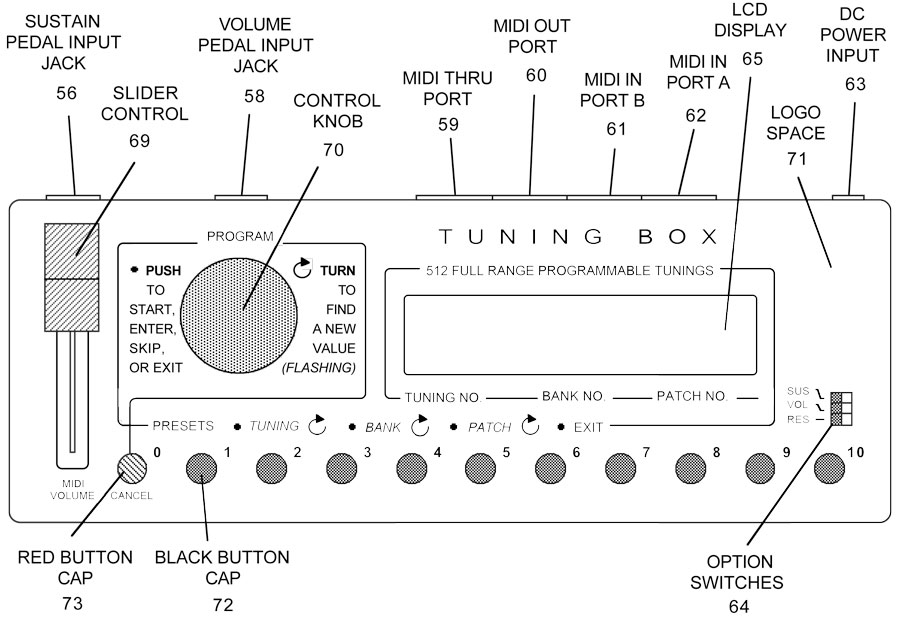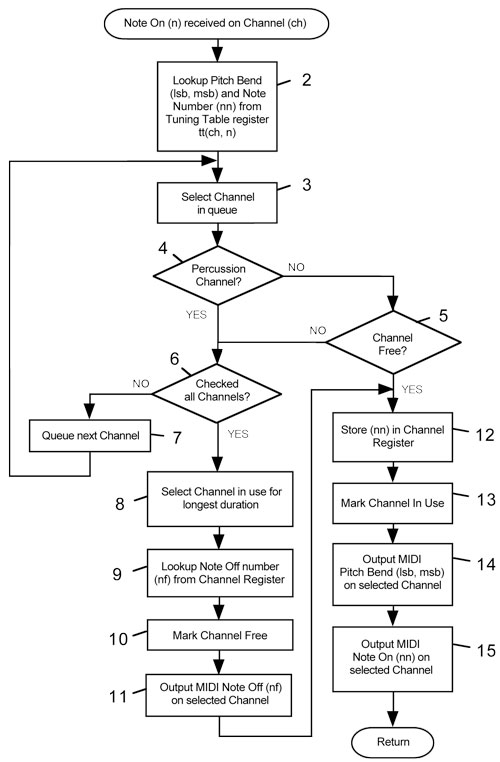



November 22, 2017

Above is my drawing from the early 2000's of the first tuning box, which with some adjustments became TBX1 a few years later. It is a hardware realisation of what I call GM microtuning. A patent application for this device, containing detailed descriptions of functions with clear flow charts and figures, has been publicly available since its filing in 2007. Here is the Note ON portion of the Dynamic Channel Algorithm taken from the application.

This patent application caused an uproar when it was submitted. Other microtonalists accused me of stealing, of trying to pass of the work of others as my own. I was vehemently insulted and abused in online forums and blogs, and even physically threatened. Luckily I had a lawyer. The worst things were removed from the internet.
It's too bad there is an ugly side to this business, but I suppose the same is true of any business. Microtuning is known to attract passionate characters. Seriously pursuing microtonal music probably requires some level of madness, but that doesn't have to be seen as a negative thing. People who change the world in a positive way are often "just crazy enough" to do what others won't or can't do.
GM microtuning, known by other names such as "round-robin pitch bend" or "multichannel pitch bend" is obviously nothing new. It's a logical idea that would occur to anyone who understands basic MIDI and wants to have microtonal polyphony. The idea has been around since the early 80's. As far as I know, the earliest published mention of it is from 1983. What nobody had ever done before was to put that idea into hardware, and make a product out of it: a device designed to retune synthesizers. That is what I did in the early 2000's, and so that is what the 2007 patent application was for. I never claimed to invent pitch bend microtuning. I claimed to invent the tuning box, which I absolutely did. The patent was not granted, however, because the examiner did not understand the invention, and cited a prior art claim that had basically nothing to do with the invention. To appeal and refile was expensive, and I was at that point exhausted. I decided it was not worth it to keep wasting what little money I had.
I never imagined getting rich from this, and I haven't, and I know I won't. And that is not the point. I'm a composer and a music theorist. I care about these thing in principle. Igor Stravinsky said in an interview that pitch is the final frontiere in music. Of course he was right. Microintervals are like undiscovered stars or planets, out there in the universe waiting to be appreciated. Those who probe these boundaries get to enjoy the riches of discovery and are also given the opportunity to contribute something new and lasting to the history of music. The Tuning Box is there to help people do that. Check out the latest incarnation, TBX2.
Best Regards,
Aaron
[ Showing 1 entry | Previous entry | Next entry | Show all entries ]